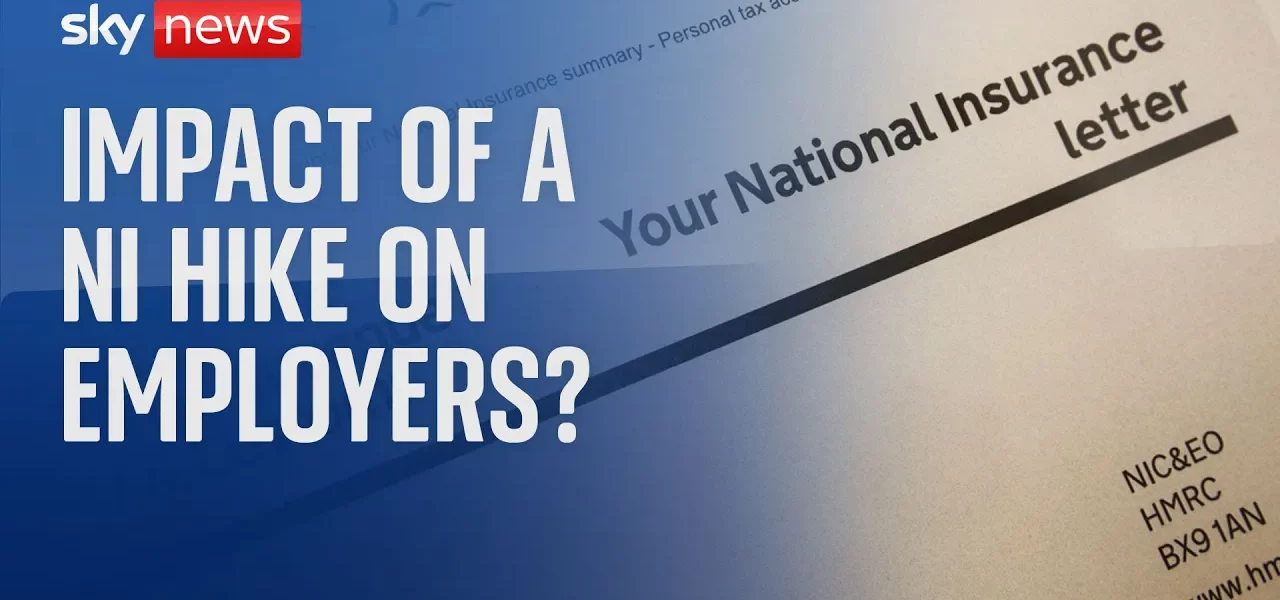Potential National Insurance Tax Increase for Employers: Political Implications and Economic Consequences
Potential National Insurance Tax Increase for Employers: Political Implications and Economic Consequences

This article delves into the recent discussions surrounding the potential increase in National Insurance for employers in the UK, as hinted by government officials. We will explore the political ramifications, economic impact, and public reactions to these speculations.
Introduction
In recent political discourse, the possibility of increasing National Insurance for employers has emerged as a significant talking point. With the upcoming budget on the horizon, both the Prime Minister and the Chancellor have hinted at potential changes that could affect employers across the United Kingdom. This speculation raises critical questions about the implications for working people, businesses, and the broader economy. As we navigate through these developments, it is essential to consider the historical context and the political strategies at play.
The Political Landscape
The current political climate is charged with speculation as the government prepares for its budget announcement. The Prime Minister’s refusal to rule out an increase in National Insurance indicates a willingness to entertain significant changes that could impact the business environment.
Government Statements and Speculation
Both the Prime Minister and Chancellor have provided clues that suggest a shift in policy may be on the table. Key points to consider include:
- The Prime Minister dodging direct questions during Prime Minister’s Questions.
- The Chancellor hinting at fiscal measures that might include adjustments to National Insurance.
- The strategic timing of these hints, appearing before the budget announcement.
Manifesto Commitments
The Labour Party’s manifesto during the last election explicitly promised not to increase taxes on working people, which raises the question of whether employers fall under this definition. This has prompted debates regarding the interpretation of such pledges and the implications of potentially breaching them.
Economic Implications of National Insurance Increases
Increased National Insurance contributions for employers could have far-reaching economic consequences. Notably, the business community is concerned about the impact on job creation and overall economic health.
Business Reactions
Business leaders have voiced their concerns regarding the potential tax increase. For instance:
- James Reed, a prominent businessman, referred to potential changes as a “tax on jobs.”
- John Caldwell, founder of Phones 4u, echoed similar sentiments, labeling it a “potential jobs tax.”
Impacts on Employment
As the labor market faces challenges, including declining vacancies, experts warn that increasing National Insurance could deter businesses from hiring. The potential impacts include:
- Increased costs for employers, leading to reduced hiring or layoffs.
- Potential stagnation in job growth, exacerbating current economic instability.
- Long-term implications for the UK economy if businesses relocate or downsize.
The Chancellor’s Dilemma
The Chancellor is tasked with addressing a significant fiscal shortfall, projected at £22 billion, which could grow if the Labour Party’s plans to restore public services are put into action. This presents a challenging balancing act between fiscal responsibility and economic growth.
Strategic Considerations
As the government prepares for the budget announcement, several strategic considerations are at play:
- How to plug the fiscal gap without stifling economic growth.
- The potential backlash from businesses and the electorate regarding tax increases.
- Catering to public demand for improved services while managing costs.
Conclusion
The discussions surrounding the potential increase in National Insurance for employers highlight significant political and economic challenges facing the UK government. As speculation mounts ahead of the budget announcement, the implications for working people, businesses, and the economy remain uncertain. Stakeholders are urged to stay informed and engaged as these developments unfold, as they will undoubtedly shape the future landscape of employment and taxation in the UK. For more insights on economic policies and their implications, explore our related articles on the UK economy and taxation.
“`




